If you haven’t heard about Total War, then may I offer to help lift that rock you’ve clearly been living under? But in all seriousness, Total War is one of the best turn-based strategy games (partially) and has spawned, wait a second let me count them . . . wow, 13 games and 4 spin-offs . . . that’s pretty impressive.
What sets Total War apart though, and what makes it somewhat difficult to get into, is that it’s not a franchise that is a series and in fact, most of the games actually take place in different time periods and even different locations. As you can imagine, that can make it a bit hard and confusing to know which game to pick up and start playing. Well, luckily for you, I’m here.
Over this short list, I’ll cover the 8 most popular games in the franchise and arranged them based on what I think the best games of the franchise are. Again, this is my opinion, so take it as such, this isn’t necessarily set in stone (when creative stuff is involved ‘the best’ can be very much subjective.
#1 Shogun 2
Here we have it, the pinnacle of the Total War franchise and really a game that is really excellent in its own right. In fact, it’s so good, we put it in the number 1 spot on our top 7 strategy games article, and it wasn’t even written by me!
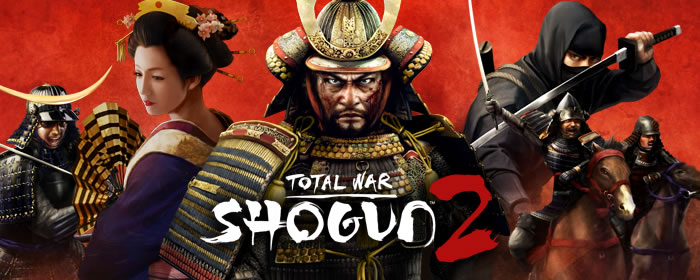
In all seriousness though, there’s a reason Shogun 2 is so lauded, and that’s due to the fact that instead of expanding its scope from Napoleon, it actually focused it and made it smaller. This, in turn, allowed them to put a lot of attention in crafting an excellent game all around.
Not only that, it’s actually funny that the top two games in the franchise take place in countries that are essentially next to each other (granted you’d have to jump over South Korea, but you know what I mean). The game is set during the ‘warring states’ period (Sengoku), otherwise known as 1545 A.D., in Japan, so you can probably see where this is going. Yep, Samurai . . . and Ninjas. In fact, maybe I should just leave it at that, it’s awesome enough.
But I won’t. As a clan leader, you are set upon the task of making your clan prosper and increase it’s reputation in a land where civil war has essentially broken out. As you can imagine, diplomacy does play a big part in this, and the AI is generally more proactive when it comes to approaching you with trades or requests.
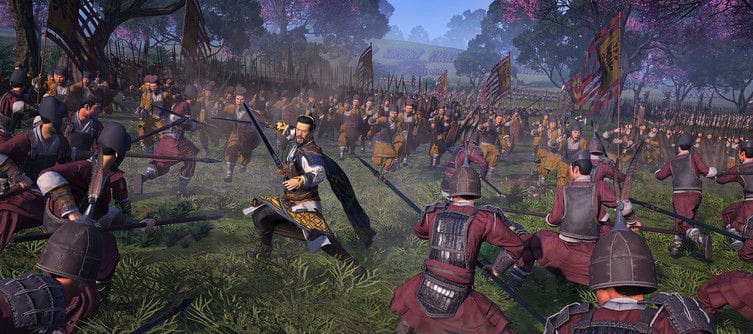
Unfortunately, it can be rather ruthless and fickle, so you have to be on top of your diplomacy game. Thankfully you can form alliances, although those can also be painful if you break them without warning, an act that is very much dishonorable and which gives your clan powerful debuffs.
The tech tree also plays a big part in Shogun 2 and which is broadly divided by Bushido (war) and Chi (Civ) and before I get @ed, I know those aren’t the literal translations, I’m just telling what each path focuses on. Of course, like most games, it’s generally not a good idea to focus too much on one tree, although certainly, Bushido will serve you more than Chi.
Both war and civ stuff are supplemented with missions, events, and dilemmas, something to fill the void while you reach your next research. As always though, when it comes to Total War, the game is in the real-time simulated battles. Unlike previous games such as Napoleon, there’s actually quite a lot of variety in unit choice, but not necessarily in the way you think.
While each faction gets their basic units such as cavalry or peasant conscripts, you also get special units by building special buildings, such as monks and ronin. On top of that, if you master any weapon, you get to hire legendary units of that associated weapon, so it’s pretty cool.
Of course, the AI has gotten a big buff (Keeping in mind that Shogun 2 came after Napoleon and before Rome 2) and they’re actually pretty smart this time around. I think a lot of it is due to the smaller and tighter environment, where you can often find hills and valleys, great strategic opportunities which the AI does actually use. The naval strategy is also handled better by the AI now, so you should keep your coastal borders guarded.
Honestly, Shogun 2 has so much detail and attention put into it, that I can’t possibly do it justice in a mini-review. Suffice to say, Shogun 2 is a beautifully crafted experience that anybody who likes strategy should enjoy. It might be a bit dated in terms of graphics (having come out in 2011) but in general, it still holds up.
#2 Three Kingdoms
Three Kingdoms is the latest entry into the franchise and so I really need to put a disclaimer here. The only reason this is in the second spot is because it hasn’t been out long enough to acquire all the loads of DLCs and fixes that the other Total War games have.
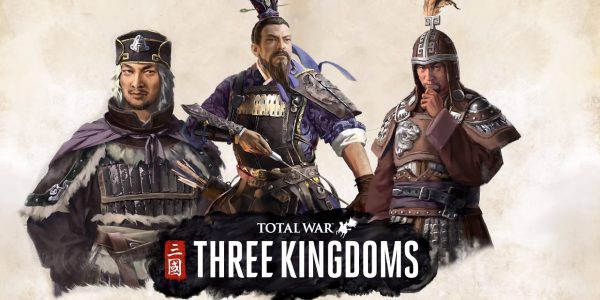
It may very well be in a few years that Three Kingdoms turns out to be the best Total War game, but for the time being, I’m leaving it at number two, even though it could have easily been number one.
Now with that out of the way, let’s get to the game and the actual Three Kingdom parts. If you don’t know what the Three Kingdoms are, they’re basically three big warlords that were vying for control of China during the 2nd century. Interestingly though, the game is based off a novel called ‘The Romance of the Three Kingdoms’ which . . . well, romanticize the whole situation.
Actually, if you’d like to know more about the historical Three Kingdoms, what lead to them and their conclusion, this Youtube video Three Kingdoms by Oversimplified. It’s actually a pretty great resource for context and gives you a general overview, so you don’t have to worry about the nitty-gritty. Also, you can actually turn off ‘romance mode’ which gives you more historical accuracy, but that’s boring.

Anyway, moving on, as you’ve probably summarized the period and location of the Three Kingdoms was full of tons smaller factions and warlords, and instead of actually picking a nation, you pick a specific leader instead.
Who you pick can wildly change how your gameplay goes, whether you pick one that has an established settlement and a small army, or one that has a massive army but no settlement. I certainly love the variability on how you start and it certainly lends an added layer of strategy to the world map, something which wasn’t necessarily the case in previous games.
Of course, with so many warlords out there, diplomacy makes a big comeback in Three Kingdoms, with Creative Assembly doing some really excellent changes and additions. For example, in older games negotiations would pretty much be a shot in the dark, never knowing what will actually work.
Well, in Three Kingdoms, you can actually click a button that tells you what would make a deal work, similar to something you might find in the Civ franchise. Similarly, the political agreements and partnerships you can make have expanded beyond just ally and enemy, and you can even create a coalition of sorts. That means you can have more than two people in this pseudo-alliance, which certainly spices things up.
Vassals have also become a much more important part of the game, with some factions even offering to be your vassal or an enemy you’re about to obliterate negotiates to become a vassal of your ally, putting the kibosh on whatever conquest plans you had.
Real-time combat is where the franchise has mostly been and it’s no different in Three Kingdoms. Armies now are based on the number of generals you have, up to a maximum of three, with each general being able to have six units underneath them. This tends to focus strategy around smaller armies and higher levels of strategy.
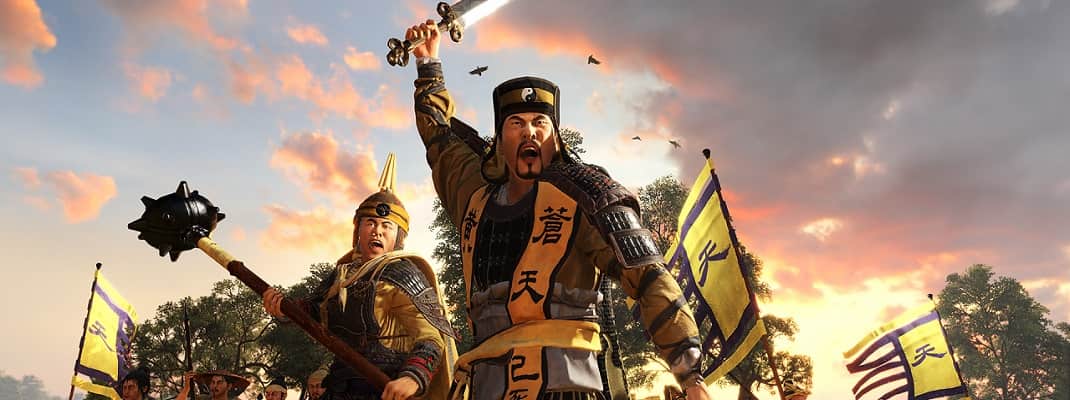
While there’s tons of stuff in the real-time combat I can’t really cover in this mini-review, I will say that the nighttime combat is absolutely gorgeous. In fact, I’m just going to leave it at that as I really want you to experience it.
Undoubtedly, Three Kingdoms is one of the best Total War games out there, and with a year or two of DLC and updates, it could (and probably will) rise to become the best Total War game (if you have a powerful processor to handle it). That is if Creative Assembly doesn’t release another game in the meantime (seriously, take a break, guys).
#3 Warhammer II
I’ll admit, when I first heard about Warhammer coming to Total War, I was like a lot of other people who groaned and rolled their eyes. Another unnecessary tie that isn’t needed at all, and not only that but a fantasy setting, something they have never tried before, as well as the fact that I’d have to wait several more years for a Total War I want. Well . . . we were all kinda’ wrong.
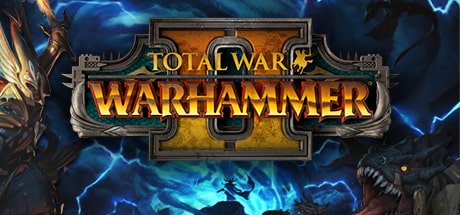
Yes, the first Warhammer had issues and it was certainly divisive in the community; either you hated it or you didn’t. Thankfully, Warhammer II came along and it wasn’t just a mini-expansion to the previous game, but instead, it was bigger, better and stronger in almost every way. Honestly, I’m not a big fan of Warhammer but the game really did pull me in and intrigue me.
The good thing is, you don’t have to have an encyclopedic knowledge of Warhammer to get into it (which would take you a lifetime anyway). You can job right in, especially since most of what you’ll find in Warhammer II is the tropes you’d expect to see in fantasy games, such as vampires and lizard people, albeit with a bit of a twist here and there.
Not only that, the game is really, really gorgeous; just the graphics and animation alone capture your interest and fascination. As you’d expect, simulated combat is where Warhammer II really stands out, and it’s a bit of a doozy. Where previous games had a general ‘class’ structure with small variations, Warhammer II has a bunch of different and disparate units to pick from, each with its own perks, stats and strategies.

This change really increases the strategic depth of the game, one of the best in the franchise, and it really makes you work for that win, while at the same time really entertaining you.
Happily, Creative Assembly has managed to fix a lot of the issues with the AI, so you aren’t going to get any of the weird behaviour your saw before. Naval combat was also removed and is now replaced with a sort of a small story thing, which is a nice change of pace, but not one that I’d necessarily want. The Campaign AI still has a few issues here and there, but certainly not as bad as the previous series, so there’s also that to be thankful for.
Replayability is also really great since the campaign isn’t so much a free-for-all that previous games were, but instead is a race to capture a magical vortex in the middle of the island. It’s certainly more structured than previous games and I have to say, it’s actually pretty nice to have.
Unfortunately, there is one major downside, which is that this game has a ton of DLC and most factions will require a purchase for unlocking, which I don’t necessarily appreciate. Still, there is some free content that goes along with each DLC, so you’re not left out to dry completely.
Overall, Total War: Warhammer II does something which a lot of other Total War games haven’t; it introduced a new fantasy setting, with new and deep strategic mechanics. Sure, it’s a bit rough around the edges and I would have preferred if they fixed naval combat rather than gotten rid of it entirely. Either way, it’s an excellent game in the franchise to play, and I’d suggest you go directly to this one and skip over the first Warhammer game.
#4 Attila
Going forward in the franchise release, Atilla tried to do what Napoleon did, but better and for the most part, it manages pretty well. Carried over from Napoleon is the narrative story-telling but this time around there’s much more cinematics and cutscenes to really sell you on the idea that Atilla is going to kill you.

Of course, how the game turns out depends a lot on what faction you pick, and you could even be a hun and Atilla himself, so that’s a lot of fun. Of course, you do need to wait for him to grow up first, as you’re placed in 400 A.D., just as the Roman Empire is basically falling apart. Barbarians and hordes reign supreme and really it’s just a terrible time all around if you’re living in that period.
What’s interesting is that this game departs from the usual mechanics of Total War where you would provinces and villages. While you can still do that if you pick one of the three Empires, the new mechanics mostly revolve around the hordes, which act as a sort of nomad tribe, similar to barbarians in Imperator Rome.
You can basically pick up your horde, settle somewhere, and then pick up again and move somewhere else, you really have tons of freedom.

Unfortunately, this freedom comes at a price, and this is where the balance of the game gets a little bit wacky. The price of settling is ridiculously high, and if you chose to pick up and leave, everything you build gets lost and you basically have to start with a tent ‘city’ from scratch. It can be pretty jarring, especially with the game’s punishing balance, it tends to get a little bit frustrating.
Where the game really shines though is in the simulated battles, which like a typical Total War game, is pretty much what the game is about. In a sense, the focus has been pulled into formations and stances, of which there are a ton, and this leads to a much deeper strategic game than previous entries in the franchise.
You have to now worry about morale, with soldiers or even generals ignoring you or rushing head-first into a disaster if you don’t keep that morale in check.
Thankfully, they’ve also managed to fix the AI, so it’s a much more fun experience playing the simulated combat. The same actually applies to naval combat as well, even though it’s still somewhat of a mess, it’s certainly an improvement over previous games. That being said, considering how bad the naval combat in previous games was, it’s not saying much.
The final and major thing that’s altered in Atilla is it’s new hierarchy and family system, something which is very similar to Crusader Kings II. In fact, if you’ve played CK II then you’re probably going to be pretty familiar with the politics, backstabbing, and family planning that goes with running your own house/horde.
Whether you consider that a good addition or not depends a lot on whether you like CK II and it’s systems, although you can certainly play Atilla easily without having to worry about it too much.
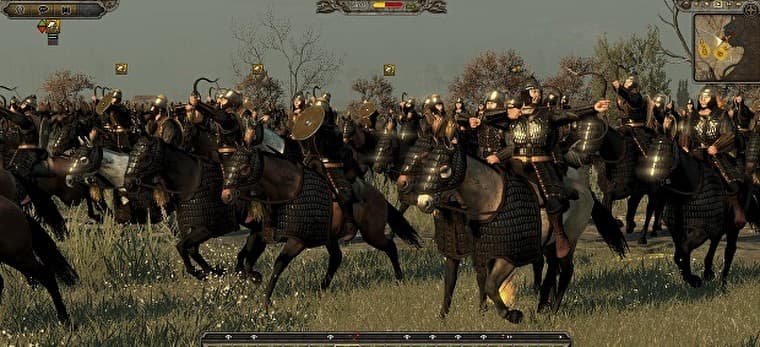
All in all, Total War: Atilla is an excellent entry into the franchise, one that tries to reproduce and add to Napoleon’s storytelling, which still innovating the overall formula of the game. The combat is also really excellent, with a big positive being the AI fixes they’ve implemented. Finally, the historical accuracy is great, and if you choose to not be a hun, you’re going to run into Atilla eventually, and you aren’t going to like it.
#5 Medieval 2
While Medieval 2 came out before Rome 2, and even Empire, it’s still one of the best Total War games around, if only for it’s recreation and representation of old school melee combat. In fact, the level of immersion and atmosphere in this game is one of the highest, akin to Napoleon, and is actually a ton of fun if you want to pretend you’re a warlord. Really, everything from religion to settlements are steeped in medieval times that they’re set in.
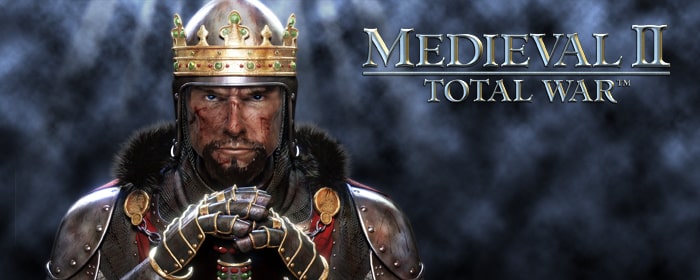
Since the scope of Medieval 2 wasn’t as big, there was much more focus on the map that you get to play, with each nation you chose having different implications. You can be the crusaders from Europe, or you can be the middle-eastern defenders and really everything in between. After all, the map only really covered Europe, North Africa and a bit of the middle-east, so all the campaigns are pretty targeted.
Of course, a lot of the mechanics introduced here exist in sequels, so there’s no need for me to really hash them out at this point. What does stand out though is the real-time simulated combat, which is just excellent if you’re into medieval warfare. It’s true though, that at the time the visuals and massive battles were more impressive at the time than they would be now, so this might really end up giving mixed results for you.
Nonetheless, Medieval 2 did have some excellent melee combat, even though the strategic aspect of it doesn’t really hold up to modern gameplay. The AI at this point in the franchise was still a little weak in terms of what it would do, so the challenge can vary wildly sometimes, even in the world map. That being said, there was an expansion that came out called Kingdoms which added a lot of historical details which really made the game shine.
Most of all though, the popularity of Medieval 2 and the ease of modding it means that there are tons of mods out there, even some that are still being made today, including a total conversion mod that turns it into LotR. It’s pretty cool.
Finally, Medieval 2 also got a definitive edition, and while it helps a lot with modernizing graphics, they didn’t much improve the AI, so there’s still quite a bit of variability in the difficulty. All in all though, Medieval 2 was a watershed game in the Total War franchise, and certainly worth a check if you love melee battlefields, being a warlord and modding. With the new definitive edition, it’s worth it even more so.
#6 Napoleon
This is one of the Total War games that stands out the most to me, and that’s mostly because I probably played this game in the franchise more than any other individual one. That doesn’t necessarily mean it’s good, and looking back on it now, I can tell that it had some really glaring errors. That being said, it was a pretty big improvement to Empire, so at least there’s that.
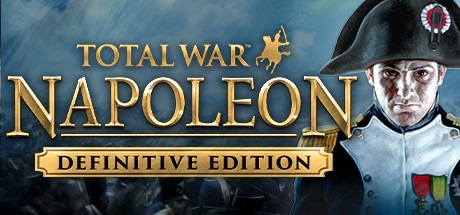
One thing that makes Napoleon stand out, is that it focused on one person, the eponymous Napoleon, rather than a specific place or period in time. It was the first time that Creative assembly had done that, and quite frankly, the historical accuracy was great, even though the narrative might have not been so much great.
That being said, it did establish a base for this type of game design element, something that was repeated in other Total War games, and even arguably in the latest one, Three Kingdoms (although don’t quote me on that).
As you might imagine in a historical grand strategy sim with a focus on one of the greatest generals of all time, a lot of improvements and additions to the simulated combat were focused on. Among them was the generals’ larger importance in the army, with generals having two special abilities that boosts morale or accuracy, as well as any armies attached to the generals automatically being replenished.
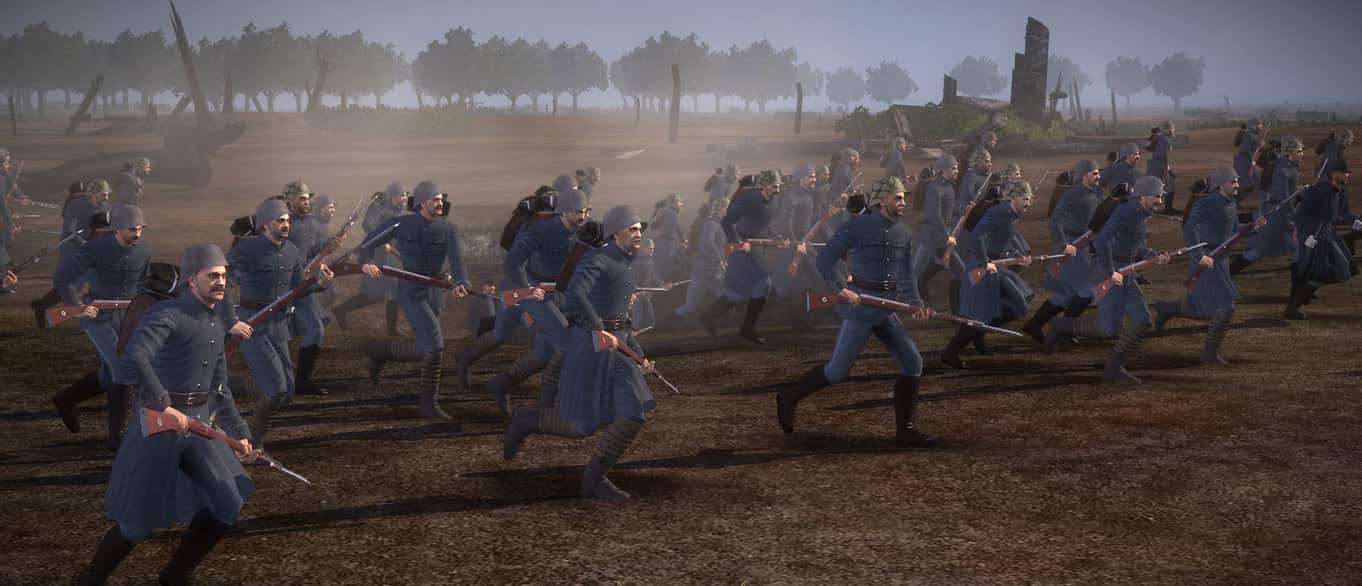
Thankfully, the combat AI was massively improved and while it won’t randomly rush you suicidally, it still does do some silly things, although it’s a definite improvement over Empire.
Unfortunately, the campaign AI remains a little bit . . . well, not that great either. Speaking of campaigns, there wasn’t such a massive shift in this area of the game in Napoleon, except for a new building for you to build, and the ability to actually switch buildings for a small fee, giving you greater flexibility.
Another thing that was added to Napoleon was seasons, with different effects depending on what nation you are (For example, bedouins could handle heat much better than anybody else).
As a sort of a mixed bag, naval combat was also massively reduced, or at least, the importance of naval ships was very much reduced. While so far in the franchise naval combat was kinda terrible, it would have been nice if they improved naval combat, rather than just reduced its importance. Of course, that being said, it might just be a byproduct of the narrative Creative Assembly was going for, so I can’t really blame them too much for that.
Napoleon: Total War certainly isn’t the best Total War out there, but it’s possibly the most immersive one, and if you’re a big history buff with a focus on that period of time, you might get a big kick out of it. Actually, Creative Assembly just released a definitive edition of the game last year, so if you’d like to check it out, it won’t feel as dated and might actually be rather good.
#7 Empire
Another entry into the Total War franchise that also got a lot of hate, Empire actually did manage to innovate quite a bit from previous games in the franchise.
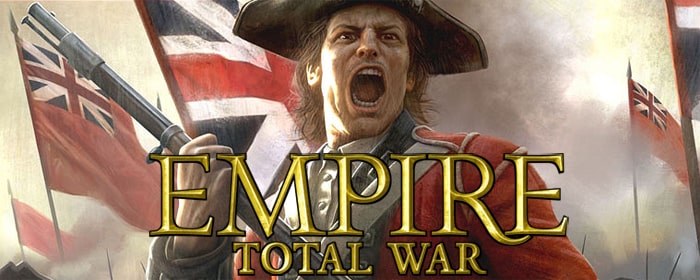
For starters, Empire moved away from the melee and bow fights of the previous games and instead introduced musket fire. It was able to do so due to moving into the 18th century, where modern warfare really began taking shape and was dominated by gunpowder. Even more so, the unit variance was massive, from Native Americans all the way to the Ottomans, so you had a huge breadth of units to choose from.
As you can imagine, these new units made a big difference in the actual real-time battles the franchise is so well known for. Complexity went up a degree, where you had to really decide how you wanted to use your ranged, cavalry and infantry. Unfortunately, the AI had many issues, and would often not engage you, or outright not work at all sometimes.
The naval battle was also something else new in Empire, and much like land battles, was somewhat broken. It was actually lots of fun to play . . . when it worked, but a lot of the time the AI would not really engage you in any creative way, and it seemed to just repeat the same strategy as always, focusing on your hull, rather than actually winning.
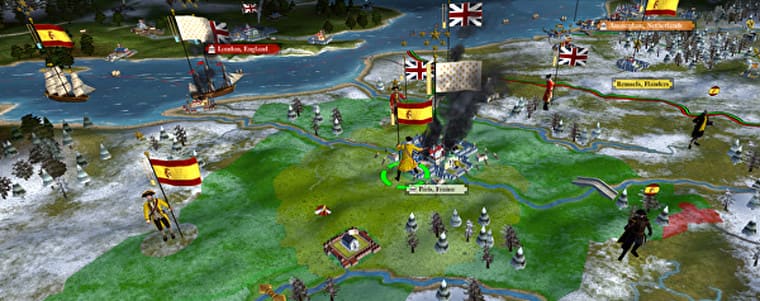
It actually took quite a few iterations of games to suss out the issues, and even Rome 2 suffered from similar problems (Rome 2 came out after Empire). Of course, while it doesn’t mean much now, the graphical improvements in Empire for both land and sea battles were phenomenal for the time, with lots of detail and animation going into each, and it was a real sight to behold.
Much like Rome 2, Empire increased its scope massively, which at the time might have caused a lot of difficult for people to transition to (and maybe one of the reasons the game wasn’t that high acclaimed by the player base).
As you might have summarised from the list of units above, not only did you find yourself in a map of Europe, but now there was a map of America, India and a few smaller trade routes, almost 3-4 times the size of previous games.
One other big thing that changed a lot with the Empire from the previous version was the introduction of the technology tree. The choices mainly fall in one of three categories; military, industry and philosophy. While at the start it may seem that decisions you make in regards to technology make little difference, it tends to snowball as you progress more and more into the game.
While Empire: Total War had a lot of the same issues as Total War: Rome 2, it also had the same ground-breaking effect of adding mechanics and scope that carried forward to future games, such as naval combat and a technology tree.
Again, issues with AI, bugs, and performance were still there, but with the new definitive edition that’s come out, it’s certainly a good opportunity to check it out, especially since the definitive edition includes all DLC and a lot of fixes to the aforementioned bugs and performance issues.
#8 Rome 2
Total War: Rome 2 tends to get a lot of gruff in the game sphere, and it isn’t necessarily because the game is bad, but mostly because it doesn’t really seem to innovate much over the first game. Rome: Total War was actually a pretty big thing when it first came out in 2006 and was treated with a bit of reverence for being a really excellent grand strategy game.
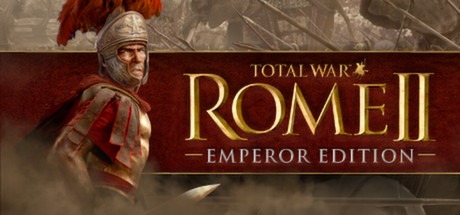
Unfortunately, Rome 2 also suffered from a bit of a shaky launch as well as quite a few bugs and performance problems, most of which have been sussed out and it’s actually a really good game, especially if you haven’t played the first.
Starting you off in 272 B.C., you’re set on a map going all the way from Britannia (England before it became England), all the way to North Africa. So it actually spanned quite a large size, including dozens of different countries, some of which weren’t even European.
This large map size, which was a departure from previous games, meant that you could actually have a huge campaign, something that clearly benefited a game in the grand strategy genre.
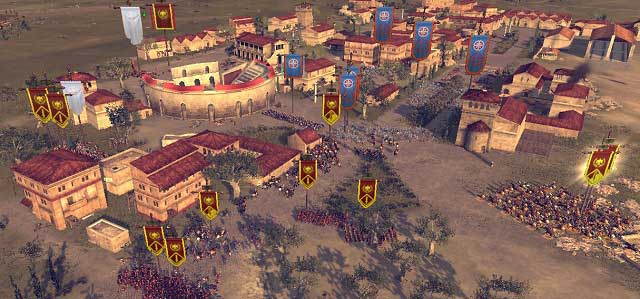
What also changed massively from previous Total War games is the way the army was structured. Before, you’d be able to recruit small armies, from which generals would automatically be picked from, so you had little choice in the matter. In Rome 2, you could actually pick generals, and in fact, the army couldn’t move without one. There were also units that provided buffs to the military, called military traditions, another nice little addition.
Armies also had more flexibility in the map part of the game due to their new stances, which allows you to fortify locations or force march your troops.
In-game simulated battles were also hugely improved in Total War: Rome 2, with the graphical improvements of the engine, really making things look mint, and the level of detail was really amazing for the time. Everything was animated too, so you’d see soldiers raise their shields or attack dogs . . . well attacking. Even the sounds were just made better, so when you zoomed in you could hear the soldiers yelling at each other and going hog-wild.
On top of that, territories were grouped into provinces, which was mostly done to avoid a huge amount of micromanagement with this new larger map and ability for big campaigns. Buildings were also placed in provinces, meaning they were less easy to target by roving armies. Even the size of your own army was based on the number of provinces you had and the empire you built.
Unfortunately, even though it had all these great additions, the AI is kinda terrible, often being more than happy to attack you with very few things in its favor. Similarly, the political system in the game, that includes houses and a senate, just fell short of making any impact, and for the most part, you could ignore it.
Total War: Rome 2 isn’t a bad game by any means, and in fact did break ground on some mechanics that carried forward to other Total War games.
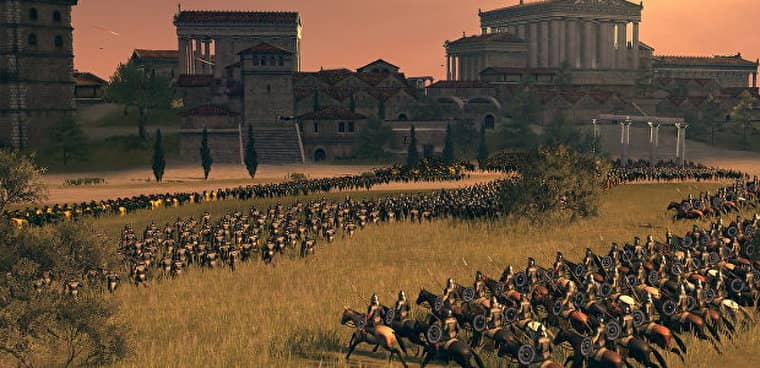
Unfortunately, it’s somewhat terrible AI, boring sea battles, nearly useless political system and bugs/performance issues on launch outshined all the good qualities it had. It’s still a game worth checking out though, and if you can get it as part of a bundle or sale, it’s well worth the trip into Total War history.
Final Verdict
As you can see, Total War spans massive timeframes and settings, with varying levels of scope and strategic complexity. Granted, the franchise AI is somewhat infamous for its somewhat bumbling approach at lower difficulty levels, but it’s certainly getting better as time goes on. At the end of the day though, I do hope I’ve given you a bit of insight on which Total War games you should be checking out.
And if you’ve already played most of these, what do you think? Have you played these games before? Have I made any glaring omissions or silly arrangement of the games? Perhaps there are some other outstanding RTS games you’d like us to consider?
Let me know your thoughts in the comments.